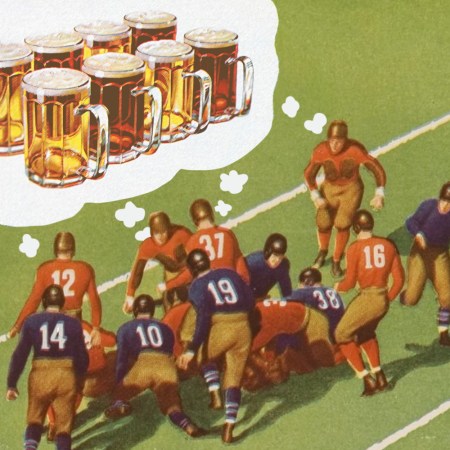Time confetti sounds fun, like the sort of thing we should want more of.
But the time-use research term, coined by the author Brigid Schulte, refers to our collective tendency to “shred” time into pieces. Give us an hour, and we’ll put it through the Fargo wood chipper — two minutes to answer this email, three to scroll through this Twitter spat, five to finish reading this article, etc.
That’s 17% of an hour up in smoke; and it’s rare that those mini-blocks play out sequentially. For those who frequently lose seconds or minutes to unproductive multitasking, there’s usually a frenetic back-and-forth at play…which could be playing out anywhere: on a toilet, at the gym, crossing the street.
Simply put, time confetti trivializes our leisure time. It’s a phenomenon of the digital age. But it’s also in conversation with a more timeless and familiar concept, called “time famine,” which was coined 15 years earlier. It refers to feeling like you have too much to do and not enough time to do it.
In either situation, unsurprisingly, people are left feeling overwhelmed, depressed and inadequate. What’s the solution? One more buzzword, if you will: time affluence.
Why Are People Making 1,000-Day Calendars?
It’s time to start thinking about September 2026. Allow us to explain.What Is “Time Affluence”?
Time affluence is the sense that you have ample time on a daily basis. Pretty simple.
But it’s also pretty damn rare. Recent Gallup surveys reported that 50% of working American feel like they’re “always” rushed, while 80% feel like they “never” have enough time. Researchers argue that we should prize and prioritize time affluence with the same fervor that we reserve for regular old monetary affluence.
After all, study after study has positively linked time affluence to subjective well-being. Time-affluent people are more present, more confident, more energetic, more generous and more connected.
As we associate the word “affluence” with wealth accumulation, it’s natural to assume that the road to time affluence starts with carving out a ton of free time. But that isn’t necessarily the case — for one, it’s possible to have too much free time. The happiness-to-leisure relationship plateaus between two and five hours a day…and actually decreases after that. Listlessness sets in eventually.
How to Take Back Your Time
The key is to make better use of the few hours or so of free time that you do have available to you each day. Time affluent people don’t have more hours at their disposal, but they do use their hours purposefully.
Psychologists use the term “active leisure” to describe activities like:
- Hanging out with friends
- Playing with children
- Walking with pets
- Exercising
- Reading
- Volunteering
- Spending time outside
- Pursuing hobbies
Notice that these are all lovely ways to spend your time. They aren’t things that we dislike or avoid — they just take a bit more planning, investment and enthusiasm than typical “time confetti” activities, like turning on the TV or scrolling through the phone. (Most of the activities listed above, in fact, thrive when technology isn’t present. With the exception of watching TV with friends, which can be quite fun.)
It almost seems too obvious to warrant the reminder — doing happy things makes us happy? No kidding. But caught between the hamster wheel and a hard place, we can easily drift from the bread and butter of active leisure, lose our time affluence, and retreat within our not-so-happy, tech-addicted, worker-bee selves.
Take 15 minutes today: challenge yourself to program some time affluence into the week ahead, choosing the active leisure activities above that really speak to you. Take honest stock of your free time; believe it or not, not having at least two hours a day is exceptionally rare. (So if that describes you, you’ve got larger questions to ponder.)
Plug in these activities accordingly, and enjoy. While old-school affluence is difficult to attain and often fleeting, time affluence is widely available and sustainable for the rest of your life.
The Charge will help you move better, think clearer and stay in the game longer. Subscribe to our wellness newsletter today.




















